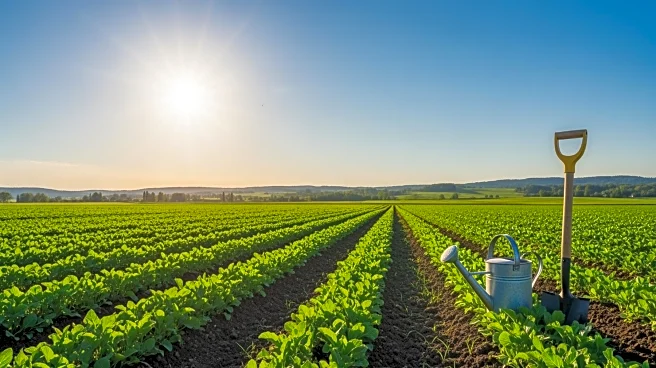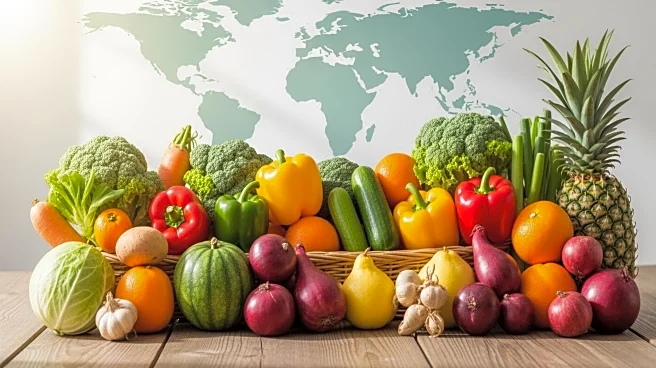What's Happening?
African Farming is tackling the funding challenges faced by black farmers in South Africa through the AgriFund Connect Summit. The summit, scheduled for November 4, 2025, aims to bridge the gap between
ambition and access by connecting farmers with financial institutions and development partners. The event will focus on making agribusinesses investment-ready and financially compliant, offering mentorship and exposure to funding opportunities. This initiative responds to the frustrations voiced by farmers regarding the lack of effective government support and broken funding models.
Why It's Important?
The funding crisis for black farmers is a significant barrier to agricultural transformation in South Africa. By addressing these challenges, African Farming is contributing to the empowerment of small, medium, and micro enterprises in the agricultural sector. The summit could facilitate economic growth and rural development by enabling black farmers to transition from subsistence to commercial operations. Successful implementation of this initiative may lead to increased agricultural productivity and improved livelihoods for farmers, impacting the broader economy and food security.
What's Next?
The AgriFund Connect Summit will provide farmers with practical knowledge and tools to attract investors and funding partners. Participants will engage with mentors, financiers, and policymakers, potentially leading to new funding opportunities and partnerships. The success of the summit could inspire similar initiatives in other regions, promoting inclusive agricultural development. Stakeholders, including government agencies and private sector partners, may collaborate to create more effective funding models and support structures for black farmers.
Beyond the Headlines
The summit highlights the importance of addressing historic injustices and exclusion in the agricultural economy. By focusing on readiness and support structures, African Farming is advocating for sustainable participation of black farmers in the industry. This approach could lead to long-term shifts in agricultural policy and practices, fostering a more equitable and inclusive sector.











